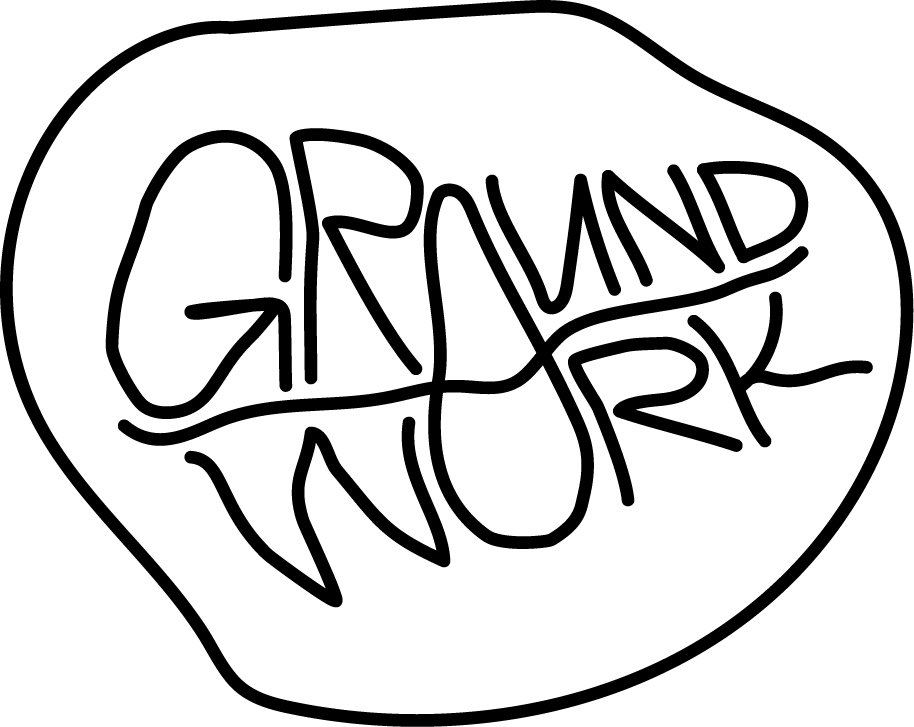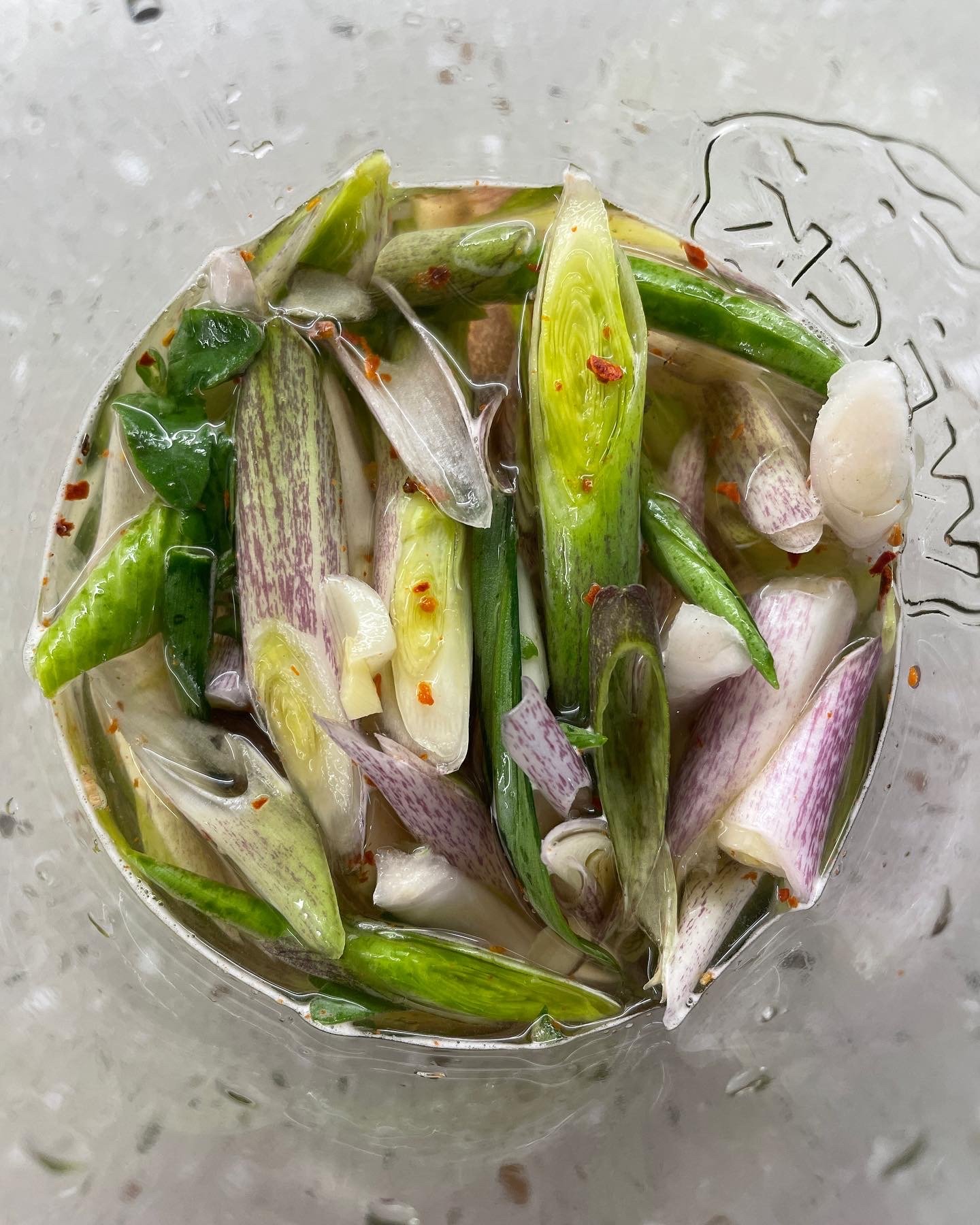The labyrinth itself shows you the way out the same way it offered you the way in.
sprouts emerging from a labyrinth pattern
labyrinth pattern in radish seeds
There's a sense of remorse perpetually lodged in my body. A remorse for how much my abilities to navigate the world deteriorated over time. I can brush this off with a joke about how Google Maps replaced the part of my brain in charge of remembering all the streets and places, but I know there's more to this. Does it have anything to do with the fact that the 14-year-old me had to construct a new map of the world as I salvaged the simultaneous dissipation of my childhood world? Sure. Melancholia is the aesthetic of choice for speaking about this. The soft sorrows of being stuck in between. The inability to fit into one identity or one place. The map I draw in my mind as I attempt to answer the question "where are you from?" is a trail with many points of interest, intersections, and dead ends. As a matter of fact, for most of my teenage years, I negotiated this unease by being online. Breakfast and dinner are always on WeChat — a habitual repetition, almost a ritual, to make up for the fact that only half of the family made it to Canada. Finding ways to connect over the internet is much easier than finding ways to connect in real life. The seamlessness of digital mediation is something easy to critique, but without that, spending fragments of time with family would have been impossible. The thin thread I hold is the way in and out of the labyrinth—the unspoken expectation of slaying the Minotaur after the meander and the reality of the lack thereof. In seeking certainty from the technologies I hold in my hand, I find myself in a greater sense of uncertainty.
Elsewhere, fragments of time together manifested in the form of what can be consumed. The back of the mall, where the maintenance spaces rumble as the vent exhausts everything possible from the interior to the exterior: the grimy fry-oil mist, rancid residuals, damp sweat, cover-up perfume over bleach, complexity. Complexity, unlike the fragrances with their notes distinguishable from one another as each component neatly dissipates over time, this "mall" smell is a mashup of everything undistinguishable and persistent. This complexity is unrefined, and it is vulgar, it is off-putting. This complexity is everything but desirable. This stink is the smell of the backroom, the uncanny, the liminal: the smell of a place where you want to look away but can't, and the smell of an uncertain feeling you can't quite put your fingers on.
Malls were a new addition to the urban landscape of Shenzhen right around the time of my family's effort to relocate to Canada. The clumsy plagiarization of the western lifestyle is spreading like a parasite: an imitation of the North American mall, with a whiff of European galleria, slowly manifested in everyone's wardrobe — taste — what you get from the malls is tasteful. In other words, whiteness is a passport to legitimacy. Among the carefully curated western brands, a new breed emerged, carving out its niche unbounded by the morals and ethics of western consumer culture. The mimics are more than the stereotypical substandard counterfeit. The mimics are not truly mimics. They are the maintenance space that the shiny brands don't want their consumers to see. "Shanzhai" is the back-of-the-mall smell made visible by a formulaic application of white paint circumventing the made-up authorities on "authenticity." Factories serving Western brand names and skilled artisans purposefully de-skilled to work in those factories carved an underground tunnel where they too can thrive—under the camouflage, posing as a mimic of the "authentic brands" that amalgamate what whiteness has extracted from elsewhere. The gotcha moment of the post-mall era. A taste of their own medicine. From a recent trip to London, the nightmarish Canary Wharf embellished by shiny objects gave off the smell of something familiar, as if this back-of-the-mall smell is some collective consciousness — an entanglement of mycelium crawling under what's visible, in the most unromantic way possible. I'm unsure whether it is better to be consumed by species of another incomprehensible intelligence, like the mutated ophiocordyceps in The Last of Us, or by our own kind in this metaphorical cannibalism. Either way, you tuck on one thread above ground, and the whole body feels underneath.
"I can sniff out a fake from miles away."
Pre-malls, post-Special Economic Zone, my grandmother collected advertisement posters of white babies with blue eyes and blond hair sitting next to a can of formula milk powder. The association between "import" and "superiority" burned into everyone's psyche just as the coastal regions of China opened their ports to the global economy. Simultaneously, a new genre of cultural wasteland became the IYKYK (if you know you know) of the 80s and 90s. The western world shipped plastic waste to developing countries as it overflowed their capacity to manage hyper-consumption's aftermath. Nirvana's grunge music flowed into Chinese youths' minds quite literally through the grungier end of the pipeline. As the US music industry painted the illusion of scarcity, the youths of China saw the wasteland as a goldmine — at the garbage dump, you find what the West is listening to firsthand. Whatever hits the charts on the other side of the world ends up in the garbage dump in an inevitable destiny. This cultural exchange is often facilitated by "that person we get CDs from when the night falls," a cultural theorist who never got a chance to publish dishes out hot takes on the moment in the global cultural landscape based on what's found in the garbage dump this week. In occupying the garbage infrastructure — values trapped in the concept of "waste" are finally freed. The malls would catch up with the trends when the state approves an official import, which rarely happens. The officially imported CDs arriving at the mall's shiny storefronts are as clean as the shelves you'd find them on, perhaps too clean, too surgical, sterile. The beautiful displays of imported CDs are the new formula milk powder advertisements. It is an official stamp of approval for being "cultured."
As below, so above. The mimic is not a mere plagiarism machine. Nobody came to an authentic idea first to claim it as the “official” one. The ultra-visible official narratives manifested in advertisements and global infrastructure networks attempting to hide the grotesque nature of consumption are the two ends of the same thread. There's no mimicking at all. We are all being moved around by the same patterns and systems. We are disoriented in this labyrinth, believing there's a turn we can take to set ourselves on a better route. We got pushed around and arrived at the same place simultaneously.
I often draw on the story of the boy raised by a river from the book Braiding Sweetgrass (Robin Wall Kimmerer) to preface the discussion on my relationship with a place. What is the landscape that raised me? What is my river? Nothing captured the essence of the waste infrastructure better than the river between Shenzhen and Hong Kong circa the 1990s, next to an entire cluster of factories and a slaughterhouse, both scritching, tirelessly pumping everything undesirable into the river. The wind wayward my childhood home is set on the same schedule as the cluster of factories and the slaughterhouse. Like clockwork, as the mechanical hums and desperate last breaths fill the air, the wind becomes saturated with a distinct stink—the smell of something dying unresolvedly. Unlike the slow, elegant deaths in the compost heap or the restrained deaths in the fermentation crock, the foul-smelling river was overloaded with microorganisms raiding for treasures in the wasteland, unhinged. The smell of what lies below the glamour of infinite growth and efficiency lingers as they ooze out a deceivingly beautiful holographic oil sheen.
A foul-smelling river. The backs of shopping malls. The garbage dump where you'll find the greatest hits. We are tucking on the collective conciousness of our anxieties from the two ends of the same thread. The labyrinth itself shows you the way out the same way it offered you the way in.
a jar of hosta shoots prepared for lacto-fermentation. the resulting ferment smells horrendous upon opening the jar, but it isn’t spoiled.
the pile of “dog vomit” emerged out of nowhere in the garden. unsightly but a magical world of its own.




